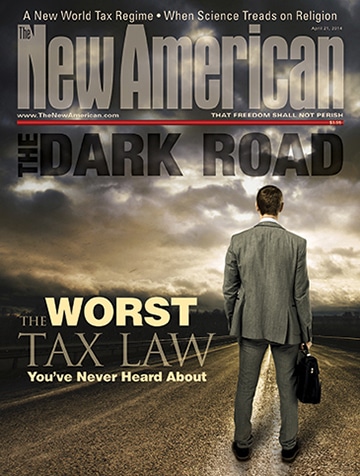Inside Track
Connecticut Raises Minimum Wage to $10.10
In a remarkable display of hubris and economic ignorance, Connecticut Governor Dannel Malloy proudly announced on Thursday that his state is the first to raise the minimum wage to $10.10 an hour:
This is just a step in moving people in the right direction.
We will be lifting people out of poverty in the state of Connecticut. Increasing the minimum wage is not just good for workers, it’s also good for business.
What the new law will really do as it is phased in over the next three years is move people out of the state, just as they have been for the last two decades. More than 10 percent of Connecticut’s population — including small business owners who currently employ half of all workers in the state — have moved away to states such as Florida (no income tax) and Texas (no income tax).
That reality has yet to register with Malloy, however, nor with Speaker of the House Brendan Sharkey, who helped push through the legislation: "Raising the minimum wage helps people who need it the most, is good for the economy, and is the right thing to do."
Wrong on all counts. When Bob Funk, the head of Express Employment Professionals, quizzed 1,213 small business owners from around the country how they would act if the minimum wage were raised nationally (as President Obama wants), he learned that one out of five of them would lay off some of their employees, while two in five said they would reduce hiring in the future. Half of them said they would be forced to raise their prices to cover the increased labor costs.
Just the thing to stimulate the economy in Connecticut.
There was one voice of reason speaking out against the raise: Patrick O’Neill, a spokesman for the House Republican minority:
[This law] isn’t going to lift anyone out of poverty.
In Bridgeport, the state’s largest city, there is a 50 percent unemployment rate among teens ages 16-19. If they can’t get a job at $8.70 an hour [the state’s previous minimum wage], what will it be like when the rate goes up?
This is just going to cause employers who create jobs in the state to hire even fewer people.
Connecticut really ought to be in much better economic and financial shape. After all, it lies on the corridor between New York City and Boston. It is well-connected by rail and highway. There’s a high concentration of executive talent living there, many in financial services. But, as Forbes magazine reported, business owners looking to start a new business are moving elsewhere.
Before making that decision, they note first that Connecticut ranks at the bottom of all states in annual growth. They have been at or near the bottom long before the start of the Great Recession. In the decade before the crisis hit, the number of small businesses in Connecticut declined by 2.2 percent while the average across the country showed a 10 percent increase. In that 10-year period, only Ohio and West Virginia did worse than Connecticut.
Governor Malloy believes that the way to achieve growth is through raising taxes. In 2011, he signed into law a $1.8 billion tax hike, the biggest in the state’s history. And yet, for some reason, the economy didn’t rebound.
A potential small business owner looking at Connecticut would also note that the state’s unfunded pension liabilities are awful — almost twice (per capita) those of California, which often contests for bottom ranking in most polls.
He will also note that, taken together, the taxes levied on his potential new business are numerous and onerous. There is the individual income tax which used to be 7.5 percent but was raised to 9 percent temporarily in 2009. There is the state’s corporate income tax and the state’s unemployment insurance tax.
He would look at the latest report from the American Legislative Exchange Council, Rich States, Poor States, which ranks all 50 states on both current economic performance and anticipated future performance. On the first list, Connecticut ranks #46, while on the second it ranks #43.
He might ask how present business owners perceive the value they are receiving for the all the taxes they pay. He would learn that “70 percent of [them] believe the value they receive for their tax dollars is extremely low considering the amount they pay in taxes.”
If he hasn’t decided by this point to look elsewhere, a prospective new business owner looking to locate in Connecticut will discover that any amount left behind, after taxes, when he dies, will be taxed again by the state if not looted first in the probate court. According to Forbes, “Connecticut’s probate court system seems to have gained a reputation for loading unnecessary costs on estates and sometimes arbitrarily nullifying wills, a practice that’s hard to distinguish from looting.”
The negative impact of raising the minimum wage on the economy is entirely predictable. When commenting on the anti-economic growth impact of the minimum wage, Professor Murray Rothbard wrote in 1995:
In truth, there is only one way to regard a minimum age law: it is compulsory unemployment, period.
The law says it is illegal, and therefore criminal, for anyone to hire anyone else below the level of X dollars per hour. This means, plainly and simply, that a large number of free and voluntary wage contracts are now outlawed and hence there will be a large amount of unemployment.
Remember that the minimum wage law provides no jobs: it only outlaws them.
With his latest declaration that raising the minimum wage in Connecticut will cure all ills, lift people out of poverty, and stimulate business, Governor Malloy appears instead to be determined to keep Connecticut at the bottom of the rankings and discourage precisely those people who could in fact do that: new small business owner looking for a place to locate.


